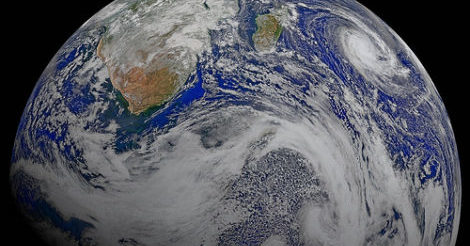
 )
)Summer, or at least the summer school holiday, is winding down, but it’s not too late to take up a summer project. I was challenged by an interview I heard with New York Times‘ columnist David Leonhardt to reconsider my point of view on an issue. While perhaps not exactly the kind of political issue Leonhardt may have had in mind, the first issue I thought of was the value of conflict–not a physical donnybrook but points of genuine disagreement or contrast in perspective on matters philosophical, theological, political, etc. For example, I have tended to buy into the narrative that polarization in politics is undesirable or counterproductive while bipartisanship is preferable. But both Leonhardt and an earlier guest on the same podcast (former Congressman Mickey Edwards) make an interesting case for polarization, or at least for a more nuanced understanding of partisanship. Or when it comes to science and faith, I am wary of the conflict thesis, making me skeptical of the value of military metaphors in The War on Science for example. So a thoughtful and well-reasoned essay on the value of conflict between science and religion seemed like a perfect opportunity to start my new summer project.
While he is advocating for a certain degree of conflict between science and religion, author Alexander Stern clearly does not have the typical conflict thesis in mind. He is not describing two irreconcilably distinct modes of thought which can only be satisfied by dominating the other. Instead, he paints a picture of separate perspectives with genuine points of distinction which can be brought into fruitful dialogue for “mutual enrichment.” The end goal is not for one side to win, but for everyone to achieve a fuller understanding of the world we live in–as Stern illustrates with an example of theological conflict and (partial?) resolution in first century Jewish teachings. If both science and religion answered all questions with exactly the same answers, they would hardly qualify as separate traditions. Having points of departure allows for interaction, and not just disagreement either. Agreement between science and religion becomes meaningful when we know such consonance is not automatic or guaranteed.
I particularly appreciated this quote: “Perhaps it should not strike us as a surprise that, as we take technology-aided excursions from our medium-sized home into the worlds of the tiny and the distant, we become perplexed.” For me, this is one of the main intellectual benefits of studying science, apart from the practical benefits of new technology. Our intuitions are heavily informed by our experiences within a narrow scope relative to the vast scale of the universe, both bigger and smaller. We should not be surprised that reaching beyond ourselves is challenging and perhaps even bewildering. Yet as we develop conceptual tools to understand what we find out there, we potentially increase our ability to understand or at least describe the one who created that vastness. Stern describes the challenges of quantum physics as a victory for religion because it validates the finitude of human cognition; I would agree that religion benefits, but by virtue of gaining new language and ideas from science with which to expand our knowledge of God. Such knowledge may always be finite, but that doesn’t mean we’ve reached the upper bound.
While I found much I appreciated in Stern’s essay and the other arguments in favor of partisanship and debate, I’m still not sure I’ve completely changed my mind on conflict per se. He mentions pluralism; I think I would call what Stern is describing polyphony. I definitely see the value of a heterogeneity of ideas. I guess I just ultimately remain wary of any language which invokes, even metaphorically, a dynamic of physical domination. We are embodied creatures with a remarkable capacity to mediate thoughts as actions. If we confuse a contest of ideas for a contest of wills, it becomes all too easy for that contest of wills to become a contest of force. Far better for such category mistakes to manifest as a fugue than a fistfight.
Stern’s discussion reminded me of John Polkinghorne’s Quantum Physics and Theology: An Unexpected Kinship. It’s a slightly older title, but I thought it could be a worthwhile option for a blog book discussion. Would that interest you? Do you have another book to suggest?
Andy has worn many hats in his life. He knows this is a dreadfully clichéd notion, but since it is also literally true he uses it anyway. Among his current metaphorical hats: husband of one wife, father of two teenagers, reader of science fiction and science fact, enthusiast of contemporary symphonic music, and chief science officer. Previous metaphorical hats include: comp bio postdoc, molecular biology grad student, InterVarsity chapter president (that one came with a literal hat), music store clerk, house painter, and mosquito trapper. Among his more unique literal hats: British bobby, captain’s hats (of varying levels of authenticity) of several specific vessels, a deerstalker from 221B Baker St, and a railroad engineer’s cap. His monthly Science in Review is drawn from his weekly Science Corner posts — Wednesdays, 8am (Eastern) on the Emerging Scholars Network Blog. His book Faith across the Multiverse is available from Hendrickson.

Leave a Reply